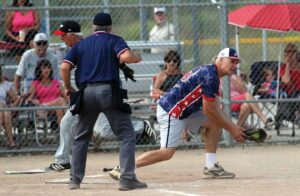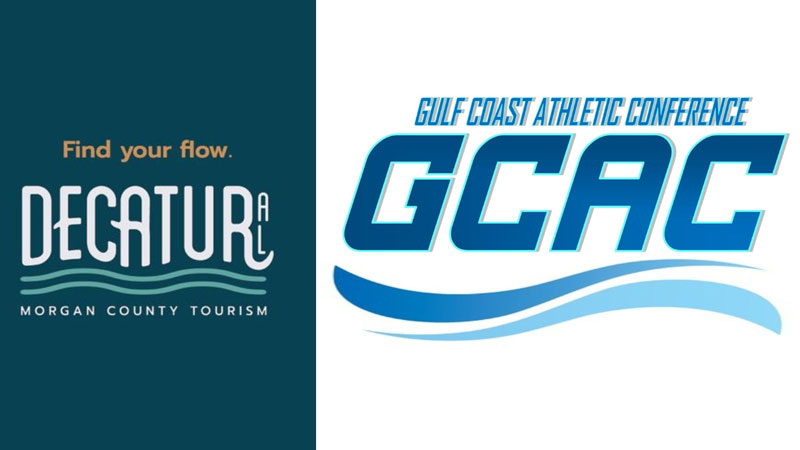
Softball is a popular sport that’s enjoyed by millions of athletes each year, and the International Senior Softball Association (ISSA) brings a hard-hitting competitive experience of the game to senior players around the United States.
The nonprofit organization was founded in 1994 by RB Thomas, Jr., as a way of bringing sports tourism to his local community in Prince William County, Va. “We held the first ISSA event in 1995,” shares Thomas, who serves as the organization’s executive director.
Competitive at any age
ISSA offers senior athletes multiple options to play. It all starts with groups based on age—the first bracket begins at 50 and each further grouping increases by five-year increments—and within each age range there are four skill levels. The organization offers both a men’s and a women’s division.
“The object is to create a competitive event for each team regardless of their skill level, otherwise your tournaments can’t draw a large number so it wouldn’t be as good of an event,” explains Thomas. “We have each division’s tournament be as competitive as it can be. Doing so isn’t a science, it’s an art.”
And it’s an art the organization takes seriously. Greg Thomas, ISSA deputy executive director and RB’s son, spends plenty of time before each tournament studying and ranking the teams to ensure each division is set up as competitively as possible. “It’s difficult managing the ratings of teams to play in different skill levels,” says Thomas. “It takes a lot of background work, and Greg is probably the best in the country at it.”
Destination outreach
Also setting the ISSA apart from other organizations—besides its detailed rating system to ensure competitive play—is its mission. Rather than setting up qualifying events during a season that culminate into a national event or world championship, the organization seeks to create several championship-level tournaments aimed at driving sports tourism for a destination. “We create quality sports tourism events—through the sport of senior softball—that are ideal for communities,” Thomas says. “We create these championship events specifically for our event partner, the destination. This partnership has been pretty successful over the years.”

The organization has grown significantly over the years, and today, ISSA runs some of the biggest senior softball tournaments in the country. The organization hosts upwards of 25 tournaments, most of which draw more than 80 teams of 15 to 20 players. However, some of its tournaments push towards 200 teams. The Great Smoky Mountain Senior Classic, an annual event hosted in Knoxville, Tenn., brought approximately 220 teams to the area for competition last year and is expected to repeat that success this year. The ISSA/WBSC World Tournament of Champions, another annual event hosted in Tampa Bay, Fla., attracted nearly 200 teams as well. The city saw more than 3,000 out-of-town players and more than 4,000 room nights over the length of the tournament.
“We work with local sports marketing officials, the CVB, or the sports commission to create events like these, specifically designed to meet the community’s available resources and facilities,” Thomas adds.
Requirements for hosting ISSA events
The ISSA administrative team attends numerous sports conferences each year to meet with city officials interested in hosting a senior softball event in their destination. For Thomas, the conversation starts with the destination understanding how the organization runs an event and, thus, how many fields are required to put on a tournament. “We require 10 to 12 fields to start, but we need to know that the city is willing or can grow the event to about 20 fields,” Thomas says.
Thomas stresses it is important to note that all fields are not required to be within one specific city. Nearby or neighboring jurisdictions can team up to create a more regional type of tournament.
“A senior tournament is a bunch is little tournaments going on at the same time, all of different ages and skill levels,” explains Thomas. “Because of that, we can be spread out over a larger region. Some cities don’t want to do that though. They don’t see the benefit of working with neighboring jurisdictions, but usually when that’s the case they don’t have enough fields.”
For example, Knoxville with the Great Smoky Mountain Senior Classic, sees the benefit and works with nearby cities, including Maryville and Loudoun, to allow it to become a major annual event that spans nearly 10 days.

“We have different groups coming in at different times, some the first weekend, then another group mid-week, and then another group over the next weekend,” says Thomas. “The destination works with us to accommodate that many teams and that means multiple jurisdictions working together to provide all of the fields needed.”
In addition to ensuring the right quantity of fields, destinations must also ensure quality. “If they aren’t [high quality], then teams won’t come again,” stresses Thomas.
This means fields must be kept in top playing condition, particularly if inclement weather arises. “Many parks and recreation departments have policies more oriented toward league play, but that’s different from our tournament play,” he says. “In league play, you can simply cancel if there is rain because everyone is local and can make up the game at a later date. In tournament play, when you have 2,000 players in town for an event, you can’t just cancel because of a little rain. You must have the resources available to make the field playable if at all possible.”
It also means offering quality fields and venues in optimal weather, Thomas adds.
“The facility itself should be kept at a championship quality as well, from the clean restrooms to open concession stands, which has been a major problem since the pandemic,” he says. “All of those things are important for the destination to provide so that they can get players to return each year.”










